
From the largest lender State Bank of India to the youngest Yes Bank, the nation's banks were fined for violating regulatory norms after sting operations exposed chinks in their armour.
The year 2013 saw the Reserve Bank of India nudge banks to not only improve customer services and reduce bad loans but also look at plugging loopholes in the regulatory system ahead of the entry of new banks.
The much-awaited guidelines for new banks were released by the RBI, which will provide licences to some of the 25 applicants in the coming year.
. . .
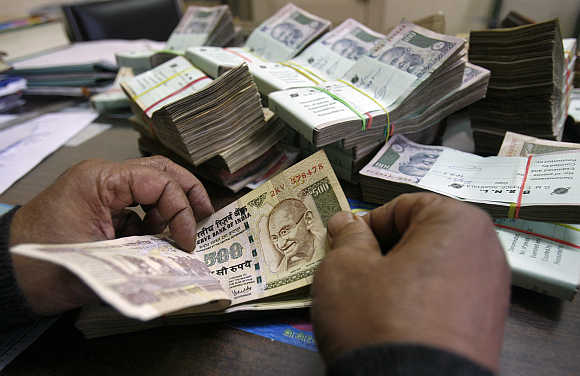
Initially, 26 entities evinced interest in entering the banking arena. Tata Sons, the holding company of the Tata group, withdrew last month, leaving 25 players in the fray.
Tata Sons pulled out a couple of months after Venugopal Dhoot's Videocon withdrew its application.
Mahindra & Mahindra, which initially showed interest in entering the sector, didn't apply, citing ‘disadvantageous’ and unclear norms.
Public sector entities India Post and IFCI and the private sector Anil Ambani Group, Aditya Birla group and Bajaj Finserv submitted their applications on July 1.
RBI Governor Raghuram Rajan had said he hopes to announce the new bank licences within, or soon after, the term of Deputy Governor Anand Sinha, which expires next month.
Sinha has been shepherding the process.
. . .
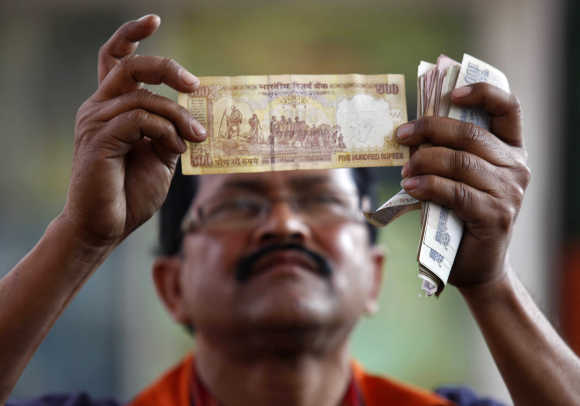
During the year, allegations of money laundering were levelled by news portal Cobrapost against three leading private sector lenders -- ICICI Bank, HDFC Bank and Axis Bank -- prompting the Reserve Bank to initiate an enquiry.
In its second expose, the portal accused 23 leading banks and insurance firms of ‘running a nationwide money-laundering racket, blatantly violating laws of the land.’
The entities named in the expose included State Bank of India, LIC, Punjab National Bank, Bank of Baroda, Canara Bank, Reliance Life, Tata AIA, Yes Bank, Indian Bank, Indian Overseas Bank, IDBI Bank, Oriental Bank of Commerce, Dena Bank, Corporation Bank, Allahabad Bank, Central Bank of India, Dhanlaxmi Bank, Federal Bank, DCB Bank and Birla Sun Life.
The portal alleged the financial entities offered to open bank accounts and lockers without following Know Your Customer norms, convert black money into white and obtain fictitious Permanent Account Number cards.
. . .
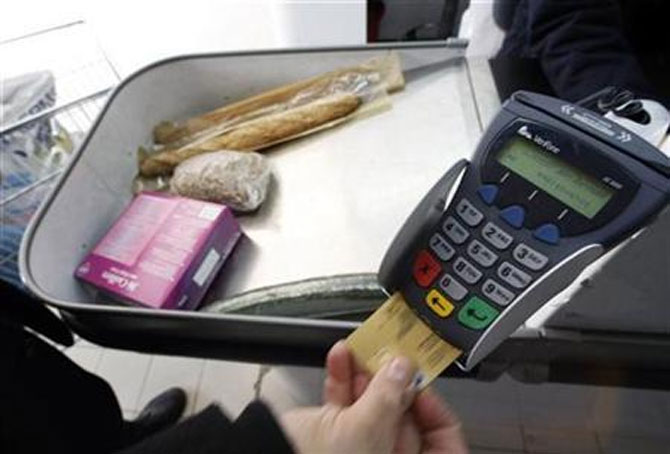
After investigations, Rs 49.5 crore (Rs 495 million) of fines were imposed on 22 banks, including SBI, PNB and Yes Bank, for violating Know Your Customer or anti-money laundering norms. Cautionary letters were issued to seven, including Citibank and Stanchart.
During the year, banks, especially public sector lenders, continued to grapple with rising non-performing assets, which were flagged by the government and the RBI to bank heads on several occasions.
In September, the gross NPAs of all banks crossed 4 per cent of total advances.
They had risen to Rs 2.37 lakh crore (Rs 2.37 trillion) from Rs 1.83 lakh crore (Rs 1.83 trillion) in March 2013.
Public sector banks alone had gross NPAs of Rs 2.03 lakh crore (Rs 2.03 trillion) at the end of September.
The SBI group had accumulated gross bad loans of Rs 76,162 crore (Rs 761.62 trillion).
The top 30 bad loan accounts of public sector banks accounted for more than one-third of their gross NPAs.
. . .
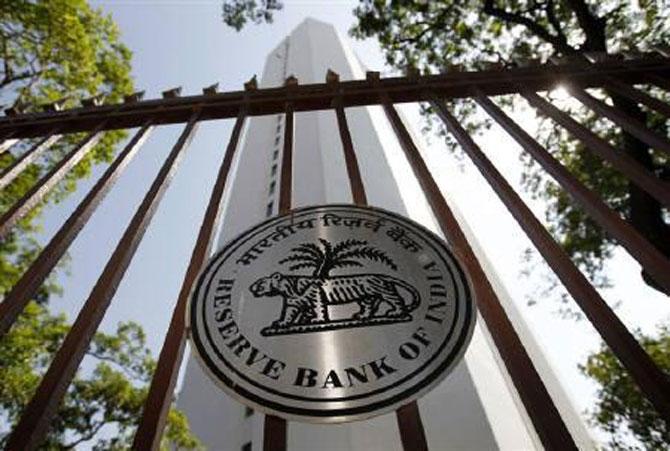
"The ratio of top 30 NPAs as a percentage of gross NPAs, in respect of public sector banks, as on September 2013 is 35.5 per cent and for all banks it is 38.8 per cent," Finance Minister P Chidambaram had said.
The gross NPA amount of the top 30 accounts of public sector banks stood at Rs 72,174 crore (Rs 721.74 billion), while for all banks it was Rs 91,667 crore (Rs 916.67 billion) at the end of September.
In the case of nationalised banks, the top 30 bad loans contributed 43.8 per cent to gross NPAs with Rs 55,663 crore (Rs 556.63 billion).
Blaming state-run lenders for the high level of NPAs, Chidambaram had said bank boards, and not the government, should be held responsible for the situation.
. . .
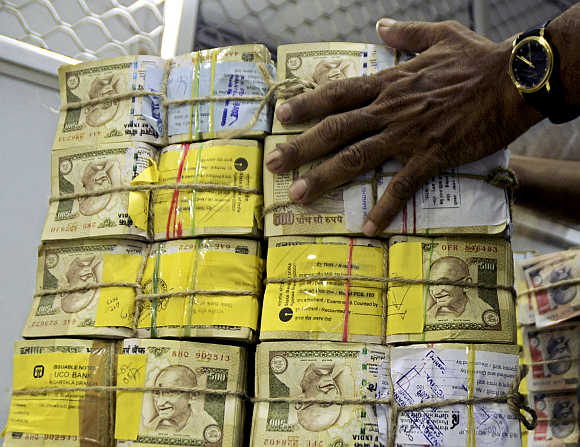
"If the bank boards cannot perform their duty, blame should stop with the bank boards and not with the government," he had said.
To curb NPAs, the government advised banks to take a slew of new initiatives, including appointment of nodal officers for recovery, special drives for recovery of loss assets and setting up of a board-level committee to monitor recovery.
Besides, the RBI has proposed measures to provide lenders incentives for early identification of problem cases, timely restructuring of accounts that are considered viable and taking prompt steps for recovery or sale of unviable accounts.
It also proposed penalising borrowers with higher interest rates for future loans if they do not cooperate in resolution.
. . .
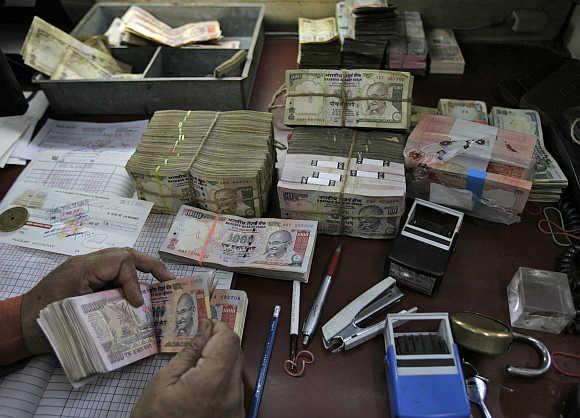
As per a recent RBI discussion paper, to improve the restructuring process, independent evaluation of large value restructuring is mandated with a focus on viable plans and fair sharing of losses between promoters and creditors.
To protect the interests of customers, the RBI banned zero per cent interest rate schemes for purchase of consumer goods through credit cards.
No additional charges can be levied on debit card payments.
The RBI directed banks not to impose a fixed fee for sending transaction SMS alerts to customers.
"With a view to ensuring reasonableness and equity in the charges levied by banks for sending SMS alerts to customers, banks are advised to leverage the technology available with them and the telecom service providers to ensure that such charges are levied on all customers on actual usage basis," the RBI said.